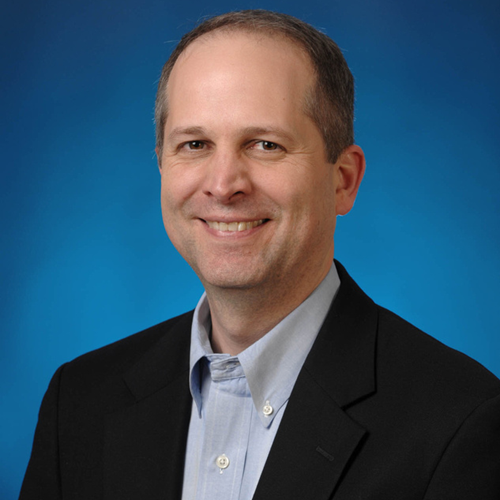Sandra Wiley, President of Boomer Consulting, Inc., is a leader in the accounting profession with a passion for helping firms grow, adapt, and thrive. She is regularly recognized by Accounting Today as one of the 100 Most Influential People in Accounting as a result of her expertise in leadership, management, collaboration, culture building, talent and training.
Sandra and I had the opportunity to speak about leadership and advisory services on the Scaling New Heights Podcast. Here is a transcript of our conversation. (Part 1)
Joe: Sandra, one topic you talk about is culture being at the core of a firm's success. Why does the firm need to place so much emphasis on culture?
Sandra: I hope culture never becomes a buzz word or one of those words that everybody uses and never really understands, because I believe it is the foundation for any firm. It can be a great firm or a terrible firm, but what people talk about is culture. They talk about shared beliefs and the values that people have. They talk about the customs and the behaviors of the people that are within the firm. In addition, they talk about how your firm, your team, and outside parties view your culture. When we talk about the foundation of a firm, we're talking about these attributes that your firm has.
Ask yourself these questions: How would people talk about your firm if you weren't standing there? How would they talk about your people issues, your people management, and how you view and honor family time? Do you have a unique culture that is different than the firm or person down the street? Do you care about your clients and your internal staff people? Are you involved in your community? Those are all things that foundationally make up the core culture of your firm.
Where does culture come from? That foundational culture comes from the owners and the leaders. To identify your firm’s culture, look at several things – your heritage and traditions, your branding, your external and internal communications, and the core values that you have.
What are your core values? Think about what you are living. What are the day-to-day living and breathing parts of your firm? There are probably no more than about five of them.
Joe: From my own experience in building the culture at Woodard, that “why” has had more direct impact on culture than anything else we've done. As a company, we forged a vision statement, a mission statement, and a purpose statement. We have three statements; the vision is the broad reach, life-long why and the purpose statement is the daily task level why, infusing purpose into everything I do. Then the mission sits in between as accomplishable, repeatable and measurable goals. All of these serve as both a compass and a powerful motivator.
These are lessons I learned from the Disney Institute. They dropped us at the back of the Epcot theme park with specially configured iPads. They said, "We want you to spend the next 20 minutes taking pictures of our employees going above and beyond their job descriptions. Get as many as you can." We thought, "How can we find anything in 20 minutes?" We did. We found all these amazing examples of them going above and beyond their job descriptions. Then they brought us back to the classroom and told us the secret: their purpose statement, their why. Every Disney employee is trained, not just in how to do their job, but in the fact that they do their job to create happiness. Disney's purpose statement is, "We create happiness." They show up with that macro goal in mind. Then every task they perform every day as part of their jobs is encapsulated underneath that.
At Disney, they said, "We're okay with an employee going off task, as long as they're on purpose." If an employee wants to leave their station for a suitable amount of time to go provide extra care to one of their customers, they're off task, but they're on purpose. So many times, people lack the why. Most businesses don't define it, don't communicate it and don’t reinforce it. Then people just show up solely for the purpose of performing the tasks, repeating the tasks, and cashing their paychecks.
Sandra: I completely agree that figuring out why we do what we do is at the core of what we want to do. If you ask accountants why they do what they do, they may say, "To make money." I don't believe that if you ask people deep down why they do what they do, it’s to earn the revenue. The outcome is the money that you make. The outcome is the profitability of your company. The why you do what you do is something much deeper. We just don't take the time to find it.
There is a wonderful TED Talk (and book) by Simon Sinek about the power of why (How Great Leaders Inspire Action). If you haven't immersed yourself in that why, then I think it's a good thing to do. Have you read that one, Joe?
Joe: I have seen his TED Talk on it, and it was one of the driving forces behind our purpose statement. Our purpose statement at Woodard, since we're educators of accountants, is, “We empower small business advisors.” I'll walk around the halls of the company, and I'll try to catch people with, "What are you doing right now?" They know the answer is supposed to be an echo back, "I'm empowering a small business advisor." Then they're supposed to tell me how because what they're doing never changes. They're always empowering small business advisors. How they're doing it is what changes. If they can't answer honestly that they're empowering a small business advisor right then and there, they're off purpose.
If you're searching for your why for your firm, I suggest starting with the definition or the term that Gary Boomer uses to describe the ideal description of an accountant. He is fond of calling accountants “agents of small business transformation.” If you know that's your goal, play off that verbiage. My purpose is to transform small business. Then ask yourself and the people in your firm at any given point during the day, "Are you empowering a small business right now?" If you have large business clients, make the adaptation. That's a fantastic place to start.
Sandra: I love that. We do the same thing as far as our why. Several years ago, we went through the Simon Sinek video. We read the book. We met as a team. We concluded that what we do every day is make people successful and ready for the future. If everything we do, whether that’s internally with our team or externally with our clients or fellow professionals, points to those words, making people successful and future ready, then we’re doing well. That is truly what drives us.
I encourage everyone out there to find your why. That will be where you begin to really identify your culture.
Joe: I couldn't agree more. Then make sure your why is directly connected to your customers and your clients' experiences.
.png?width=150&height=63&name=TWRlogo-regmark_blueblack%20(1).png)
.png)










Do you have questions about this article? Email us and let us know > info@woodard.com
Comments: